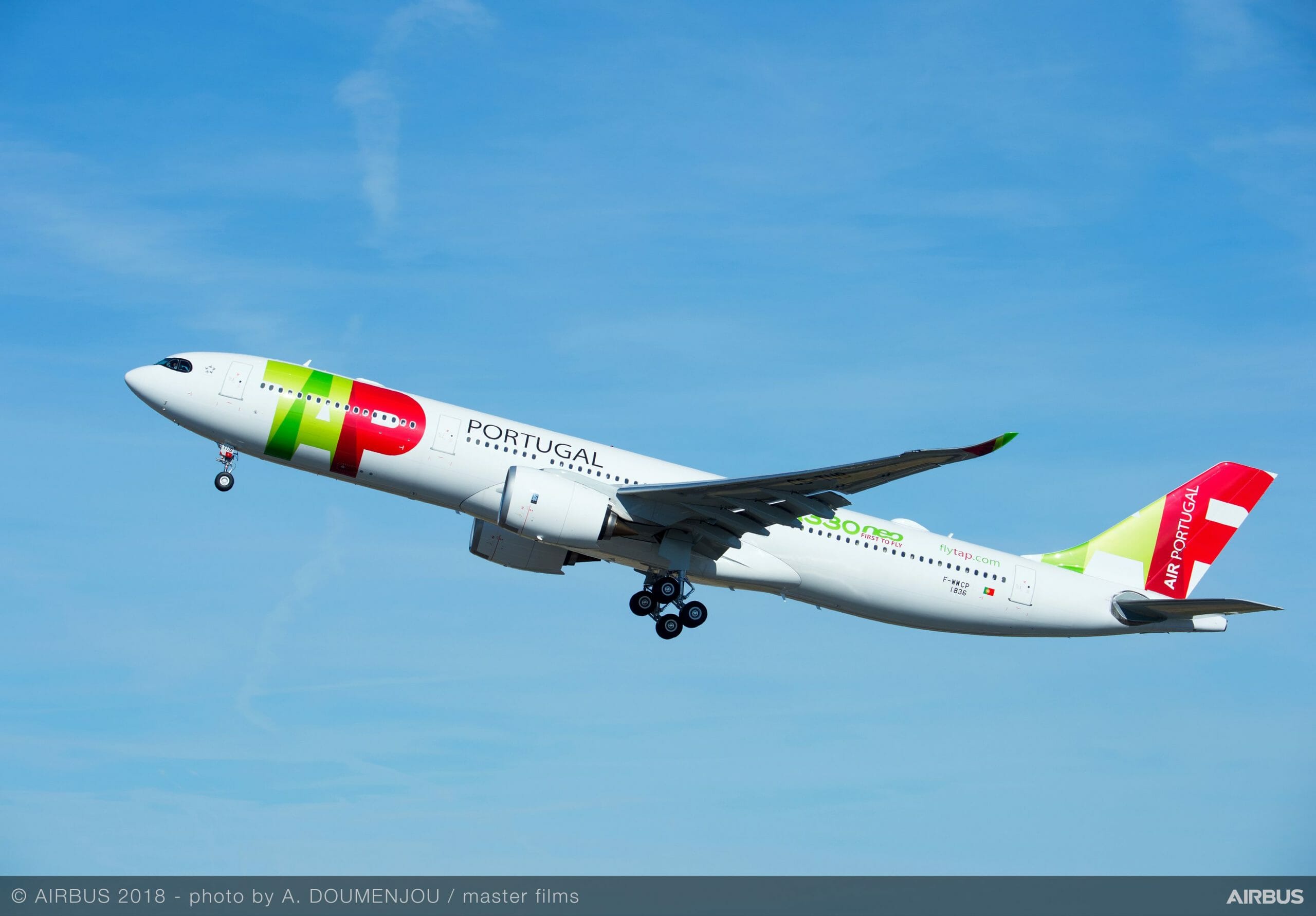
TAP Air Portugal A330 900 takeoff scaled
Flag carrier TAP Portugal will have to restructure from early next year by reducing its staff by 2.000 and its fleet by at least a dozen aircraft, Portuguese Minister of Infrastructure and Habitation Pedro Nuno Santos said during a media briefing on December 11. Drastic action is necessary to save the future of the airline, which has been suffering heavy losses in the past months.
Following the approval by the European Commission of a EUR 1.2 billion government loan to TAP that was announced on June 10, the airline had to submit a restructuring plan to the EC by December 10. The state aid consists of EUR 946 million as an interest-bearing loan, with the option to provide another EUR 254 million.
TAP reported a net loss of EUR -118.7 million in Q3, with revenues -81 percent to 195.2 million. From January to September, net losses were EUR -700.6 million on revenues down -66 percent to 841.3 million. At the end of September, TAP had EUR 326.8 million in liquidity available, thanks to EUR 499 million in state funds that were provided until September after the Portuguese government increased its share in TAP from 50 to 72 percent. This followed David Neeleman’s decision in February to sell Azul’s 22.5 percent stake. Nuno Santos said today that Neeleman, who has resigned from the TAP Board in October, has lost EUR 169 million on his investment in TAP as he was paid only EUR 55 million for his stake. The remaining 22.5 percent of the airline is still owned by Humberto Pedrosa.
The restructuring plan aims to reduce TAP’s workforce from 10.000 to 8.000 in 2021-2022. The remaining staff will have to take a 25 percent salary cut in order to save another 600 to 1.000 jobs. Until September, 729 staff have already lost their jobs while a simplified lay-off scheme allows the airline to reduce working hours by up to seventy percent.
The plan should bring TAP EUR 1.4 billion in savings by 2024 and could make it profitable again by 2023-2024. The airline will restructure and review its network, at the same time optimizing it to the long-range capabilities of the Airbus A321LR fleet. Short term, capacity for the winter schedule has been reduced to sixty to seventy percent of 2019 levels.
TAP presented this fleet deferral plan at the end of September.
As said, reducing the fleet is part of the restructuring. By the end of Q3, TAP had 101 aircraft, including those of regional subsidiaries Portugalia and White. This is set to be reduced to 88.
During Q3, it already retired one Airbus A320ceo and one A330-200, with two A320ceo’s and six A319ceo’s to be retired in the coming months. More are to go in the coming year.
At the same time, TAP continues to renew its fleet. Two A321LRs entered service in Q3, with one A321Neo and one A320neo to join before the end of the year. Airbus’ order list shows TAP committed to 13 A320neo’s (of which eight were in service on November 1), 20 A321neo’s (16 in service, of which ten leased), and 12 A330-900s (19 in service, of which nine leased).
In September, TAP said it had deferred deliveries of 15 aircraft. This includes a reduction of five A320/A3212neo’s in 2020, two in 2021, and six in 2022, adding them to the fleet from 2025, while also deferring two A330-900s from 2022 to 2024. Deferrals save TAP one billion in capital expenditures to 2022.
During HY1, the Neo’s were highly utilized to 80-81 percent of block hours or 46 percent on average for the first six months, bringing significant fuel savings. Four A321LRs and two A330-90s were used on cargo-only and repatriation services in May and June.
Nuno Santos stressed the importance of TAP and the Lisbon hub to the Portuguese economy, to which it is contributing EUR 2.6 billion each year. “Losing TAP would have far more serious consequences than that, and that is no small feat, the 10.000 unemployed who would have it if TAP went bankrupt”, he said.
Views: 8




